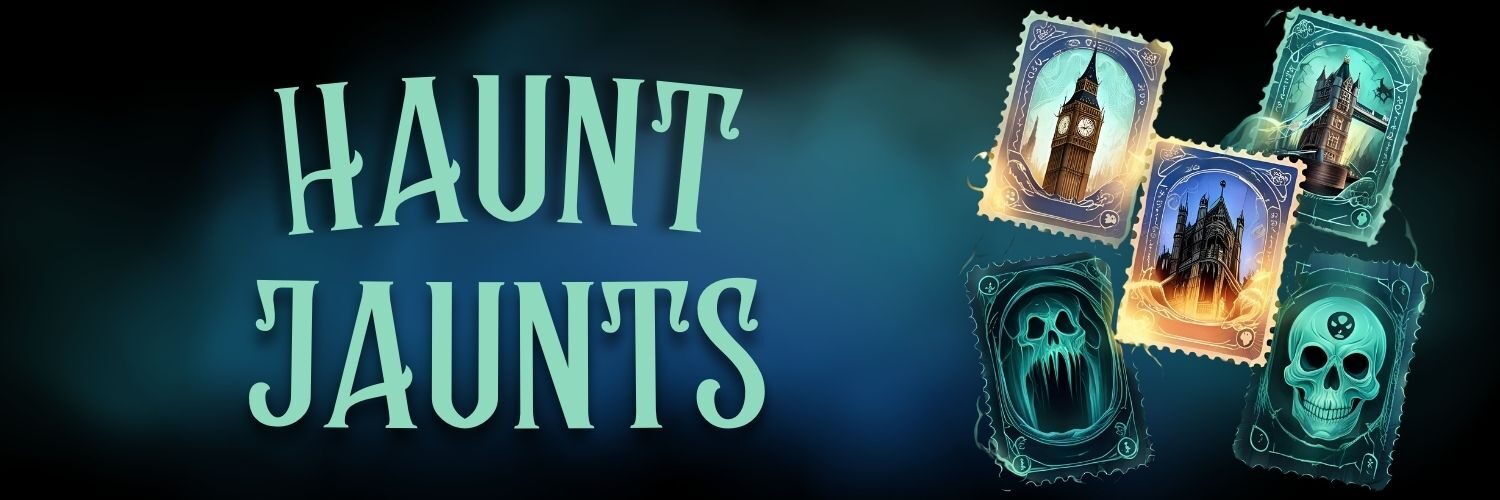
The Email
Last summer, a woman named Teresa Lynn used the Haunt Jaunts Contact Us form to send an email with the subject line: “A Killing in Vicksburg.” The message was only one sentence long. It read: “On June 28, 2015 ghost hunters found a body in an abandon hospital while investigating.”
I wasn’t sure what to make of that. At the time, I was still posting Haunted Headlines. Was she trying to pass along a story for that? Or suggest something I should look into further to write about?
I didn’t know. The only way to find out was to write back:
“Hi Teresa! You’ve got me intrigued. Is this from an actual article? Court P.S. Sorry for the delayed response. I was on vacation and didn’t have much cell service. Back now!”
The Reply
Here’s what she wrote back:
Yes, Courtney. My novel, ‘A Killing in Vicksburg’ is inspired by actual events in the rape and murder of a woman June 27 & 28, 2015. Ghost hunters found her body later that evening at a haunted abandoned hospital during their investigation. A man was arrested and indicated on these charges, but later escaped Warren County Jail. My novel uses the murder and escape as a backdrop to tell stories (using local history) of how the residents of Vicksburg endured 8 terrifying days the accused killer was on the loose in this small town (less than 27,000 people in the city).
The Dilemma
The email exchange has sat dormant in my inbox ever since. I knew I wanted to write something, but what? How to work it into a post? (Sometimes that comes easier –or hardier, depending on how you look at it– than others.)
I got the feeling Ms. Lynn wanted me to read her book or give it some promo. However, I had reservations writing about it without reading it first.
The obvious answer would’ve been to read it, but that’s a little more complicated. I’ll get to that. But first, let’s look at the murder that inspired the book and this post.
The Murder
It wasn’t until I started drafting this post that I researched the murder. (Yeah, yeah. I hear you. Yes. That would’ve made for a good post. Hey, I never claimed I was the fastest car on the track.)
Anyway, the story was a definite headline maker, both locally and nationally. Here’s some of them:
- “Ghost hunters find woman’s body at haunted hosptial” – USA Today
- “Ghost hunters find body in Vicksburg” – WAPT
- “Authorities: Ghost hunters discover body at old Miss. hospital” – CBS News
- “Ghost hunters make frightening discovery in abandoned Mississippi hospital” – FOX News
As the headlines state, ghost hunters found the body of 69-year-old Sharon Wilson at the Kuhn Memorial State Hospital in Vicksburg, Mississippi, on June 28, 2015.
Rafael McCloud was arrested for the murder. In March 2016 he escaped from jail. He stayed on the run for eight days before he was killed in a home invasion. (He was the invader. The home owners ended up shooting and killing him.)
Pretty crazy story, right? No wonder someone wrote about it.
The Book
Not that A Killing in Vicksburg looked bad, but I couldn’t get a good sense of what it was about. Was it a mystery? Horror? Paranormal? Combo of one or more? Instead of a blurb, there was only this review describing it:
‘Good and evil is for time and eternal while we live on this earth. In this story based on true facts, Teresa Lynn clearly presents the darkness of evil, a time of no mercy, as suffered by a good person, in present-day Vicksburg, Mississippi. The narrative is set in the sleepy, southern, historic town where Sharen Wilson lives a happy life, busy with her job and the trappings of a tourist town, when the unthinkable happens. Will evil win this time or will Sharen’s kind, good spirit, a product of light, be the victor?’ –Anne B McKee, Mississippi Storyteller and Author.
If it had had a more compelling pitch (blurb), I might’ve bought it. However, there were two other things going against it that discouraged me from purchasing it:
- It was only available in print. I’m awfully fond of my Kindle. Total space saver. It’s how I get the majority of my reading done –en route somewhere. So much easier to pack it rather than five or six books. (Not to mention so much easier to carry.)
- The stars –or, rather, lack thereof. It had several reviews. (I don’t remember how many back then. As of this post, it has 15.) But something that hasn’t changed since I first looked into it is the one and half stars.
The Reviews
The reviews were not only less than glowing but hostile. People were not shy about voicing their displeasure with someone writing about the real-life murder of Sharon Wilson and trying to sensationalize it “for profit.”
However, in the author’s defense, only two of the reviews were verified purchases. The rest are not. Some of the the reviewers admit up front that they neither purchased the book nor read it –and that they never plan to.
Generally, people found it distasteful. The review with the most helpful votes comes from “Julia,” who says she’s a close friend of the victim’s family. She took exception that the author did not contact the family while putting the book together, and released it so close to the murder’s anniversary.
To me it appears the other negative reviews came in response to a campaign against the book. Julia’s review was left on June 24, 2018. Whether she spread the word, or somehow word got out, it’s not clear. But the majority (though not all) of the rest of the negative reviews have June 30, 2018 dates.
The Problem
True crime is all the rage these days. New podcasts and docu-series are released regularly. All because it’s consumed. The public gobbles it up. The more sensational the better.
The problem is real people are involved in these cases the masses are devouring. When a case is fifty to a hundred (or more) years old, like Jack the Ripper or Lizzie Borden, it’s easier to detach and think of those involved more as characters in a story. We don’t get to see their faces or hear their voices. And rarely do we hear from those who actually knew them.
But when the case is fresher, so is the grief. One day tragedy struck. A life was gone. Others were irrevocably changed, leaving behind moms and dads, brothers and sisters, aunts, uncles, cousins, children and friends to try and make sense of senseless acts of violence. When they share their stories, they personalize it. They bring the victim back to life, which enables us (those of us with empathy, that is) to share their heartbreak.
The Questions
Did Teresa Lynn overstep a boundary?
If you judge based on the book’s reviews, yes.
Did she mean to? I don’t know. Would she have been better off writing a non-fiction true crime book that gave the family a chance to have a voice? Again, I don’t know.
I do know that contrary to popular belief, there is very little profit in writing. Usually. Famous writers and those with the publicity power of big publishing houses behind them fare okay. But for someone publishing independently or with a small press? They’re making a few bucks here and there at best –and I do mean a few. Under $100, if not under $25.
And when you add in bad Amazon reviews? Sometimes it backfires and feeds people’s curiosity. They want to see if it’s as bad as all that. Generally, though, low stars are the kiss of death.
So I doubt Ms. Lynn capitalized very much on fictionalizing the murder of Sharon Wilson. I hope that eases some of the fury those who were angered by the book felt.
However, I’d also like to give Ms. Lynn a chance to respond. I find it hard to believe she meant harm. I’ll share this link with her and ask if she’d be wiling to answer a few questions. If she does, you know I’ll post a follow up.
Courtney Mroch is a globe-trotting restless spirit who’s both possessed by wanderlust and the spirit of adventure, and obsessed with true crime, horror, the paranormal, and weird days. Perhaps it has something to do with her genes? She is related to occult royalty, after all. Marie Laveau, the famous Voodoo practitioner of New Orleans, is one of her ancestors. (Yes, really! As explained here.) That could also explain her infatuation with skeletons.
Speaking of mystical, to learn how Courtney channeled her battle with cancer to conjure up this site, check out HJ’s Origin Story.
